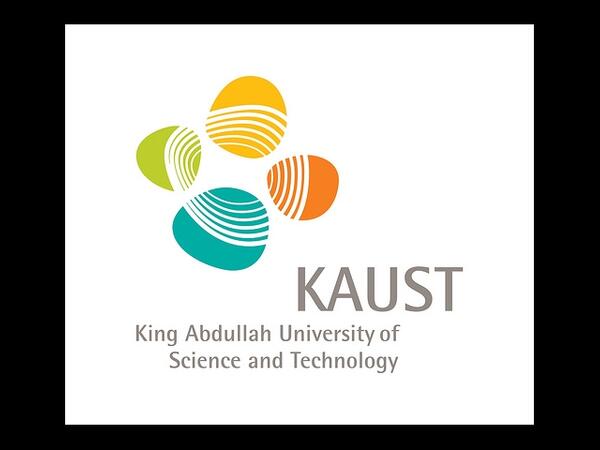
Smart Delivery: KAUST Saudi Arabia
King Abdullah University of Science and Technology (KAUST) is a prestigious research institution built from scratch in 2009 in Thuwal, Saudi Arabia, about an hour north of Jeddah on the coast of the Red Sea. The campus is home to a population of 7,000 students, faculty, staff and family members - many of whom are foreigners with over 116 countries represented.
The delivery of goods is a frustrating experience for the KAUST community - both for deliveries from off campus and from the restaurants and shops on campus. These frustrations can detract from quality of life and interfere with academic priorities.
KAUST, the ASU CIC, and AWS came together to examine the challenges and identify potential solutions.
Problem
The Working Backwards process identified three primary and a number of secondary issues. The three main delivery challenges are communications, pick-up and delivery.
Communications: communications with vendors and couriers are complicated and frustrating. The ability to track deliveries and perform online functions like payment of duties and fees is limited. It is often unclear when and where packages are delivered. Being able to access delivery information would have a significant impact on quality of life by: limiting the anxiety of not knowing, reducing the time it takes to track down where deliveries are, and making it easier to order from on-campus vendors.
Pick-Up: members of the KAUST community are often on the go, whether traveling off campus, moving from home to the lab, the office or other locations. Having an easily accessible pick-up location, like a smart locker, would make it easier to track and receive deliveries. Smart functionality would allow recipients to let other family members or proxies pick up packages as well.
Delivery: deliveries from off campus often need to be received at the campus gates. If the package is a large or heavy item, like furniture, it may be hard to get home or to the office, especially for students who may not have a car. On campus, ordering from restaurants, the grocery store, or pharmacy usually requires picking up the items. Because there is no all-purpose delivery service, those vendors wanting to provide delivery have to do it themselves.
Additional considerations include support for the wide-array of languages in the KAUST community, the unique culture of Saudi Arabia, the geographic location of KAUST, and the extreme heat and humidity which can impact the shipping of food, medicine, lab supplies, animals, and other sensitive items.
Approach
KAUST invited AWS and the ASU CIC to conduct an Innovation Workshop at the university December 2, 3 and 4th to explore the delivery challenges and hold a hackathon to design solutions. Participants included KAUST representatives from across administrative departments, faculty, and students.
On day one, the participants used Amazon’s working backwards process to develop a set of artifacts - a Press Releases, list of FAQs, and a visual of the customer experience. These artifacts were developed through a series of facilitated exercises that explored the delivery problems in detail, mapped the customer impact, and identified a universe of potential solutions.
The ASU CIC and KAUST staff then organized a two-day hackathon with university students and staff. The Working Backwards Artifacts were used to explain the problem and customer’s proposed solution and guide the developers in creating a proposal to build the solution. Instead of the usual prototype, the hackathon deliverable was a solution proposal. AWS is now providing cloud credits to the winning team to build their solution.
Supporting Artifacts
The Amazon Working Backwards process produces three artifacts - a Press Release, a list of Frequently Asked Questions, and a Visual depiction of the user experience. You can find the KAUST artifacts here:
| KAUST Press Release | Press Release |
| Frequently Asked Questions FAQ | FAQ |
| Visual | Visual |
| Solution | Solution |
Next Steps
KAUST Smart is working with the winning team to develop their proposal into a lean prototype using AWS products, cloud credits, and technical support.
About KAUST
Established in 2009, KAUST has quickly become a destination for scientific and technological education and research. By inspiring discoveries to address global challenges, the university strives to serve as a beacon of knowledge that bridges people and cultures for the betterment of humanity. KAUST advances science and technology through distinctive and collaborative research integrated with graduate education. KAUST is a catalyst for innovation, economic development, and social prosperity in Saudi Arabia and the world.
You can learn more about KAUST’s vision and activities at www.kaust.edu.sa.
About the ASU CIC
The ASU Smart Cities Cloud Innovation Center (CIC) is a strategic relationship with Amazon Web Services (AWS) and is supported by AWS on ASU’s Innovation campus - SkySong. The mission of the CIC is to drive Innovation Challenges that materially benefit the greater Phoenix metro area and beyond. The CIC will do this by solving pressing community and regional challenges, using shareable and repeatable technology solutions from ideation through prototype, as a service for the greater human good.
The CIC also provides real-world problem-solving experiences to students by immersing them in the application of proven innovation methods in combination with the latest technologies to solve important challenges in the public sector.
The challenges being addressed cover a wide variety of topics including homelessness, water conservation, vandalism, pedestrian safety, digital service delivery and many others. The CIC leverages the deep subject matter expertise of government, education and non-profit organizations to clearly understand the customers affected by public sector challenges and develops solutions that meet the customer needs.
For more information on the ASU CIC, to read about projects or to submit a challenge, please visit https://smartchallenges.asu.edu.
Photos
